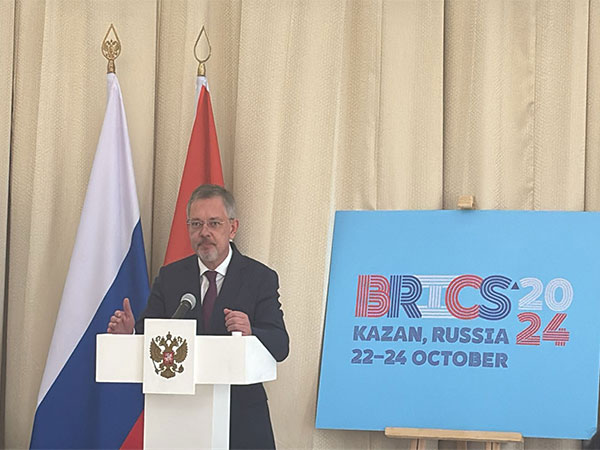BRICS Summit: Alipov Lauds India-China Relations, Criticizes Western Sanctions
Russian Ambassador Denis Alipov praised the first meeting in five years between India and China, highlighting its potential to bolster Eurasian stability. He underscored BRICS' role as a non-Western coalition, critiqued Western sanctions, and announced new BRICS initiatives, including expanded partnerships and a cross-border payment system.

- Country:
- India
The recent BRICS summit saw Russian Ambassador Denis Alipov expressing optimism about the thawing relations between India and China. Alipov welcomed the significant meeting in five years between leaders of both nations, calling it a positive step for the region's security and economic prospects. Discussions held in Kazan addressed border issues and bilateral cooperation, promising a stable partnership that could influence Eurasian stability and prosperity.
Though Russia did not organize the constructive diplomacy between India and China, Alipov valued this strengthening of ties, viewing it as beneficial for global stability. He echoed Prime Minister Narendra Modi's views on Eurasian prosperity hinging on strong India-China relations. The BRICS summit, in a historical expanded format, saw leaders from 35 countries discuss development issues and global governance reforms. Clarifying BRICS' position, Alipov stated it is a 'non-Western,' rather than anti-Western, platform that promotes a multipolar world order.
Responding to Ukrainian President Volodymyr Zelenskyy's criticism of the summit as a 'failure,' Alipov dismissed the comments as unfounded. He highlighted the summit's successes, such as the establishment of new BRICS 'partner states,' enhancing cooperation and value diversification. Alipov noted initiatives like a BRICS cross-border payment system, and expanding currency arrangements to help manage member countries' current account deficits. Future plans include AI regulation, tourism, and MSME development, reflecting the Kazan Declaration's goals.
Alipov stressed BRICS' economic influence amidst global tensions, noting its significant shares in global oil production and land area. In contrast, he criticized that the G7 does not encompass many fast-growing economies. Sanctions imposed by the U.S. on Russia, noted Alipov, point to potential future threats to other BRICS countries, advocating instead for global reform. He affirmed that BRICS focuses on systemic change, rather than targeting other nations.
(With inputs from agencies.)










